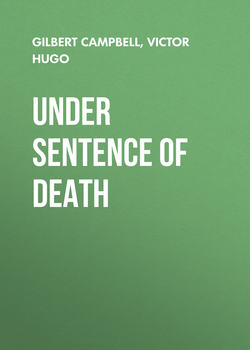Читать книгу Under Sentence of Death - Виктор Мари Гюго, Clara Inés Bravo Villarreal - Страница 28
UNDER SENTENCE OF DEATH
CHAPTER XXVIII
ОглавлениеThe priest has come back to me.
He has white hair, a gentle manner, and a benevolent face. Indeed, I have heard that he is a really good and charitable man. This morning I saw him distribute the contents of his purse amongst the prisoners. But his exhortations have no effect on me. I was callous to all that he could say, his words slided from my mind as cold rain from a frozen window-pane.
However, his reappearance gave me pleasure. Amongst all those who surround me, he is the only one who still looks upon me as a man, and I am thirsting for kind and cheering words.
We sat down, he on my chair, I on the bed.
“My son,” commenced he. These words went at once straight to my heart. He continued, “Do you believe in God?”
“Yes, father,” I replied.
“Do you believe in the Holy Roman Catholic and Apostolic Church?”
“Certainly,” answered I.
“My son,” observed he, “I fear that you are a waverer.” Then he began to speak again. He talked for a long time; then when he fancied that he had said enough, he for the first time raised his eyes to mine as if to question me mutely.
“Well?” asked he.
I declare that I had listened to him first with eagerness, then with attention, and lastly with reverence.
I got up from my seat.
“Sir,” said I, “leave me alone, I entreat of you.”
“When shall I return?” asked he.
“I will let you know.”
Then he left me without another word, shaking his head, as though he were saying to himself:
“An infidel!”
No, low as I have fallen, I am not an infidel. My God is my witness that I believe in Him. But what has this old man been able to say to me? Nothing that I have felt, nothing that has touched me, nothing that has drawn tears from my eyes, nothing which goes from his soul direct to mine. On the contrary, what he has said to me he might say to any one else, emphasizing his words when his argument had need of depth, full of platitudes when it should have been most simple, a kind of sentimental sermon and theological elegy. Here and there he put in a Latin quotation from Saint Gregory, Saint Austin, or some one else. He had the air of a man who repeats a lesson that he has said many times before, and which, though half forgotten and obliterated from his memory, returns again to him from the fact of his having known it long years before. There is no expression in his eye, no emphasis in his voice; nor do his features add to the power of his oratory.
And how could it be otherwise? This priest is the prison chaplain. His duty is to console and to exhort; he lives by that. He has grown old in preparing men for the scaffold. For many years he has made others tremble, whilst his white hairs never bristle at the horrors that he is a witness of. For him the scaffold and the galley are matters of every-day life. They bore him. Probably he keeps a book of sermons—such and such a page for those sentenced to death, and another for those in penal servitude. To-day he was warned that some one would require the consolations of religion. He asked whether it was a condemned criminal or a galley-slave, and, upon receiving the reply, turned to the necessary page, refreshed his memory, and came here.
Oh! if instead of sending for him they had sought out some young vicar, some old priest from a remote parish sitting in his chimney corner reading his book, and not expecting the summons; and saying to him: “There is a man about to die, come and console him. You will have to be with him when they bind his hands and cut his hair; you must ride in the cart with him, and with the crucifix hide the headsman from his sight; you will be jolting against him on the road to La Grêve; you will pass with him through the terrible crowd thirsting for his blood; you will take leave of him at the foot of the scaffold, and will remain in waiting until his head is in one place and his body in another.”
Then when they bring me into his presence trembling from head to foot, when I embrace him and clasp his knees, he will weep; we shall mingle our tears together; he will wax eloquent, and I shall be consoled; my heart will soften to his words, he will take charge of my soul, and I shall rely on his God.
But this old man, what is he to me? What am I to him? A man of the lowest class, a shadow many of which he has seen, a mere unit added to the figures in the list of executions.
I was wrong, perhaps, to send him away as I did; it was he who behaved well, whilst I acted wrongly. It is my breath, that destroys and blasts everything around me.
They have brought me refreshment, fancying that I must be in need of it; a nice enough luncheon—a fowl, and something else, but after the first mouthful I have been unable to eat—everything tasted full of bitterness and corruption.
